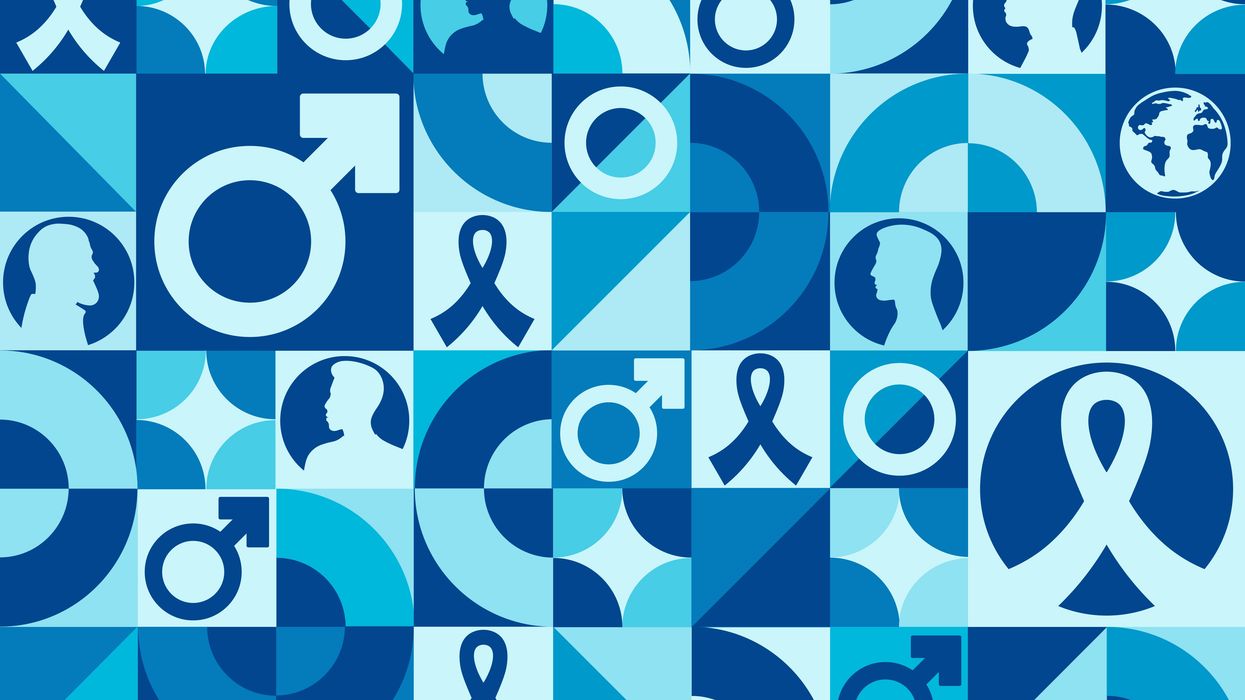In our modern day, many people ignore stress as part of the everyday normal. Severe feelings of being overwhelmed by work deadlines, financial crises, personal responsibilities, etc can cause numerous emotional and physical problems. If the problems of chronic fatigue, mood swings, weight fluctuations, or even irregular periods continue despite the implementation of stress management systems, it is perhaps wise to consider the possibility of a hormonal imbalance.
A person's hormonal health is very central to their health. The body relies on a network of glands called the endocrine system designed to produce and regulate hormones, and this system affects nearly every physiological function within a human, their metabolism, their mood, and, even their immune response. If there is some kind of disruption to this balance, the outcomes can go beyond basic stress symptoms. How does one differentiate between stress discomfort and the more sinister internal hormone imbalance? Here, we will answer some important questions concerning stress discomfort, and hormonal health.
Comprehending Hormonal Imbalance
An imbalance occurs when your body has too little or too much of a hormonal substance. This condition can affect both genders, however, it is most commonly linked to female reproductive hormones, estrogen, and progesterone. Additionally, other hormones like cortisol, insulin, and thyroid hormones are also equally important.
Once the body is suffering from dysregulation of hormones in the body, a wide range of physiological activities gets disrupted bringing about signs that are adverse and at times merge or worsen with stress. Being able to see these particular signs is highly important to make the call on whether what you're feeling is just stress or something far more troubling.
Symptoms of Hormonal Imbalance
So, in brief: your imbalance of hormones might lead to these symptoms, most of which mimic stress and anxiety. But the reason why persistent symptoms are a problem is due to them being unfounded, unexplained, and feeling disregarded for too long. A higher degree of imbalances tend to cause:
●Chronic fatigue or low energy levels.
●Unexplainable mood fluctuations, anxiety, or cases of depression.
●Menstrual cycles with irregular periods or symptoms of extreme PMS.
●Little libido and problems of sexual dysfunction.
●Problems with digestion such as bloating and stomach constipation.
Although anxiety can influence some of the hormone imbalance symptoms, the long-standing presence of the symptoms themselves shows that there is also some underlying issue like that of hormone imbalance.
Can Stress and Anxiety Affect the Balance Of Hormones?
An important question that arises is: can stress and anxiety cause an imbalance of hormones? The response is affirmative. Chronic anxiety can result in the overproduction of one’s primary stress hormone, cortisol. If cortisol remains elevated for long periods, other essential hormones like insulin and sex hormones will not be produced normally.
For instance, too much cortisol can suppress the estrogen and progesterone hormones produced by females. The result is a combination of irregular menstrual cycles, mood swings, and even fertility issues. Also, in excessive cases of high cortisol, testosterone production in men is reduced. This leads to fatigue, muscle loss and depletion of libido.
Also, chronic stress can interfere with sleep, which makes the disruption even worse. Since quality of sleep is important for proper hormone functioning, a lack of it will create a problem because stress will worsen the hormonal shift and the imbalance will make it difficult to control stress.
Main Reason Hormones are Out of Balance
In addition to stress and anxiety, other reasons can lead to an imbalance in hormonal activities. Some of them are:
1. Diet and Eating Habits
A diet that is highly composed of processed foods, sugars, and unhealthy fats can result in an imbalance in hormone levels. In addition, there are other nutritional gaps such as the lack of important minerals like magnesium, zinc, and B vitamins which can worsen the instability.
2. Lack of Exercise
Physical activity is an important element for regulating hormones. Inactivity can result in resistance to insulin, weight troubles, and elevation of cortisol levels which can disturb the balance of these hormones.
3. Not Enough Sleep
Like most chronic sleep issues, poor sleep is associated with the lack of ability to regulate the body’s production of hormones. The sleep hormone, melatonin, works synergistically with cortisol and when this function is obstructed, it can result in fatigue, mood changes, and even an increase in body weight.
4. Effects of Toxin Exposure
Household toxins include pesticides and plastics that may be part of the daily environment. Such toxins can either modulate or simulate hormone-level functions. These chemicals, called endocrine disruptors, can dramatically skew the natural balance of hormones in the body, relatively speaking.
5. Medical Issues
An individual who suffers from these conditions, such as polycystic ovary syndrome (POC), and thyroid and adrenal fatigue, must be prepared for an imbalance of hormones. Persistent worrying hormone imbalance symptoms that do not improve following behavioral changes can justify medical attention.
Stress management is a natural way of restoring hormonal balance.
Correcting an imbalance of hormones is not an easy feat. Lifestyle and medical intervention steps need to be combined effectively. Here are basic proven steps for supporting hormone health in nature.
1. Get Better at Managing Stress
Stress and anxiety are problems at the core of imbalance of hormones. It is, therefore, critically important to make an effort at stress management. Effective mental and physical approaches include taking a yoga or meditation class, enjoying a leisurely walk in nature, or practicing deep breathing exercises to lower cortisol levels.
2. Try Keeping a Hormonal Friendly Meal Plan
Add whole and fresh foods to your diet by shifting your focus to:
●Healthy Fat sources such as avocados, nuts, and seeds that contribute are vital for the production of healthy hormones.
●Lean protein sources aid in muscle repair as well as in increasing metabolism.
●Vegetables, legumes, and whole grains are rich in fiber aid in digestion, and help in insulin regulation.
●Hormonal balance may also be achieved through the reduction of sugar, caffeine, and alcohol intake as these have been shown to cause undesired blood sugar fluctuations.
3. Make Exercise a Habit
Moderate exercise frequency, including walking, lifting weights, and piloting, reduces cortisol and increases hormone levels. However, excessive workout regimens will have the reverse effect and lead to higher amounts of harmful stress hormones. Strive for equilibrium.
4. Sleep Comes First
Work towards seven to nine hours of sleep each night. Keeping regular sleep and wake times helps generate melatonin, which is vital for hormone control and provides better sleep.
5. Do not use products that have been known to alter the function of glandular organs and systems.
Natural and organic products to treat skin and hair, as well as soaps and containers to store food, have been proven to be less harmful and more safe.
Although stress is an inseparable part of our lives, constant fatigue, mood changes, and abnormal periods may point to a bigger concern. One cannot ignore the relationship between stress and imbalance of hormones, as stress can damage one’s endocrine system and make the symptoms of hormone imbalance worse over time.
Adopting a hormone-friendly way of living by eating well, managing stress, exercising regularly, and sleeping sufficiently can aid in natural hormone secretion. Attempting to restore balance without proper guidance may not yield results, and, in such cases, consulting an expert can help in determining appropriate solutions and contribute to achieving desired goals.
References
- Mayo Clinic. (n.d.). Hormonal imbalance: Symptoms, causes, and treatments. Mayo Clinic. Retrieved March 10, 2025, from https://www.mayoclinic.org/diseases-conditions/hormonal-imbalance/symptoms-causes/syc-20350840
- WebMD. (n.d.). Hormonal imbalance in women: Causes, symptoms, and treatments. WebMD. Retrieved March 10, 2025, from https://www.webmd.com/women/guide/understanding-hormonal-imbalance-basics
- National Institute of Diabetes and Digestive and Kidney Diseases (NIDDK). (n.d.). Hormones and your health. U.S. Department of Health and Human Services. Retrieved March 10, 2025, from https://www.niddk.nih.gov/health-information/endocrine-diseases/hormonal-imbalance
- American Thyroid Association. (n.d.). What is hypothyroidism?. American Thyroid Association. Retrieved March 10, 2025, from https://www.thyroid.org/what-is-hypothyroidism/
- Harvard Health Publishing. (2020, September). What stress can do to your hormones. Harvard Health Blog. Retrieved March 10, 2025, from https://www.health.harvard.edu/staying-healthy/what-stress-can-do-to-your-hormones














 Dr. Cary S. Kaufman teaches the "Essentials of Oncoplastic Surgery" course through the National Consortium of Breast Centers, providing breast surgeons around the world with advanced techniques for optimal breast surgery outcomes.
Dr. Cary S. Kaufman teaches the "Essentials of Oncoplastic Surgery" course through the National Consortium of Breast Centers, providing breast surgeons around the world with advanced techniques for optimal breast surgery outcomes.

